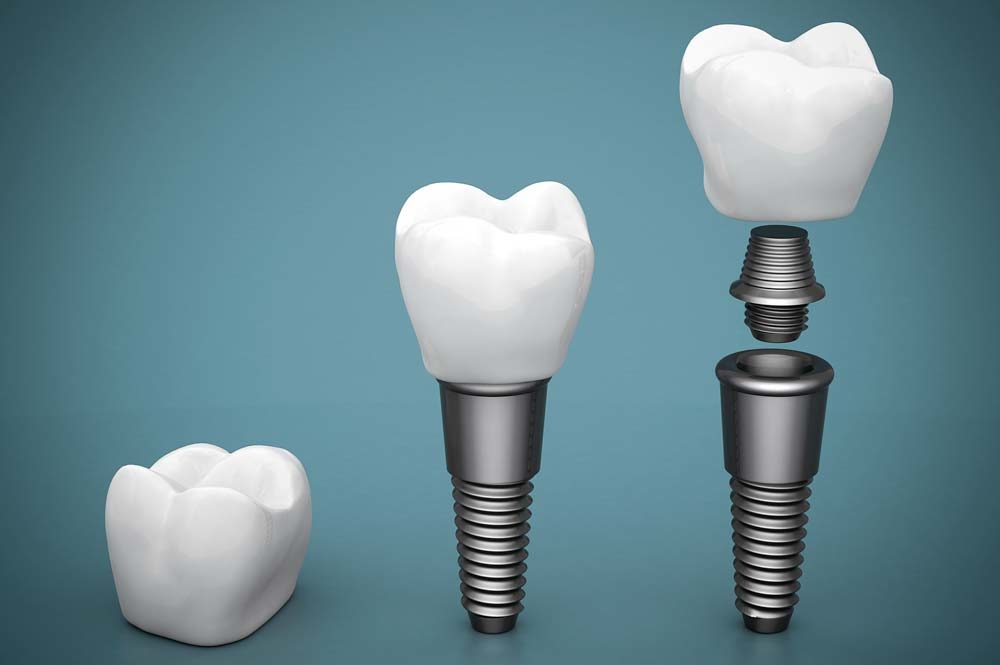Home » Dental Implants

The loss of a single or multiple teeth may significantly affect a person’s ability to chew their food and can affect the appearance of their smile. A missing tooth (or teeth) may also alter the frame and shape of an individual’s mouth. Dental implant surgery is a beneficial tooth-replacement option, which can greatly improve a patient’s quality of life.
What is a dental implant?
A dental implant, which is manufactured from titanium or ceramic (zirconium) material, may be surgically ‘implanted’ to allow replacement of a single tooth or multiple teeth. In other cases, dental implants may be utilized to improve the retention of a partial or complete denture. At Oxford OMS Centre, the surgeon works closely with referring dentists to develop an individualized treatment plan for each patient. Typically, the surgeon performs the dental implant surgery and the patient’s dentist prepares and inserts the crown (or tooth component) after the implant has fully healed. A healed (or osseointegrated) dental implant functions in essentially the same way as a natural tooth. The healing time after implant surgery ranges from 3- to 4-months in most cases, after which the implant will be strong enough to support a crown, bridge, denture, or other prosthesis.
What type of anesthetic is used?
At your consultation visit, our surgeon will discuss the anesthetic options for your procedure. Many factors determine what type of anesthetic would be most suitable for your specific situation. These factors include your level of anxiety with dental procedures as well as the duration and complexity of your treatment. In all cases, local anesthesia is used but, in addition to that, patients may have their treatment performed under light sedation, deep sedation, or general anesthesia. Ensuring a comfortable experience for our patients is our top priority, and our surgeon will guide you through the process of determining the anesthetic type that is right for you.
Do implants require special care?
Once dental implants have healed and have been restored with teeth, they will last for many years if you take care of them and maintain a healthy oral environment. This means taking the time to brush and floss around implants just as you would around natural teeth. As always, keeping regular appointments with your family dentist and dental specialists will help ensure the longevity of your dental implants, dental prostheses, and any natural teeth.
© Copyright Dr. Matthew D. Morrison, Oxford Oral & Maxillofacial Surgery Centre | Dental Website Design by Platinum Design